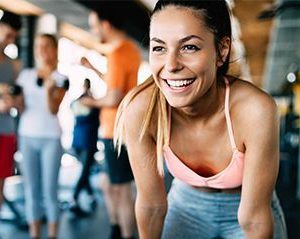- The Best Time of Day to Drink Bone Broth to Maximize Health Benefits
- 8 Ways to Increase Dopamine Naturally
- 7 Best Breads for Maintaining Stable Blood Sugar
- Gelatin vs. Collagen: Which is Best for Skin, Nails, and Joints?
- The Long-Term Effects of Daily Turmeric Supplements on Liver Health
- Could Your Grocery Store Meat Be Causing Recurring UTIs?
- Are You Making This Expensive Thermostat Error This Winter?
- Recognizing the Signs of Hypothyroidism
- 10 Strategies to Overcome Insomnia
- Could Artificial Sweeteners Be Aging the Brain Faster?
Getting a COVID Vaccine Won’t Affect Your Ability to Exercise

Worried that a COVID-19 vaccine might hamper your workout? New research suggests you can hit the gym with minimal effects.
In a study of 18 healthy people who received a COVID-19 vaccine, the participants were monitored while they did cycling workouts before and two to three weeks after being fully vaccinated.
The researchers also conducted exercise tests in a control group of people who did not receive a COVID-19 vaccine.
The results showed that COVID-19 vaccination does not impair the body’s response to exercise, and that it’s unlikely to have a negative effect on exercise performance “in the vast majority of healthy people,” said senior author Richard Simpson. He is a professor in the School of Nutritional Sciences and Wellness at the University of Arizona in Tucson.
The new finding dovetails with other research.
During exercise, vaccinated people studied had no change in their oxygen consumption levels or the release of certain metabolites — such as lactic acid — into their blood.
Their heart rate and levels of the stress hormone norepinephrine did increase during exercise, indicating that the body had “to work a little bit harder to perform the same amount of exercise after vaccination,” Simpson said in a news release from the American Physiological Society.
Simpson and his colleagues hope their findings will encourage more people to get the COVID-19 vaccine.
The study was recently published in the Journal of Applied Physiology.
Simpson did offer one vaccine caveat.
“[The] small elevations in heart rate and norepinephrine seen after vaccination could have implications for athletes at the elite level,” he noted. “More consideration regarding the timing of vaccination in close proximity to major sporting/athletic events should be given.”
More information
There’s more about the safety of COVID-19 vaccines at the U.S. Centers for Disease Control and Prevention.
SOURCE: American Physiological Society, news release, Feb. 3, 2022
Source: HealthDay
Copyright © 2026 HealthDay. All rights reserved.










